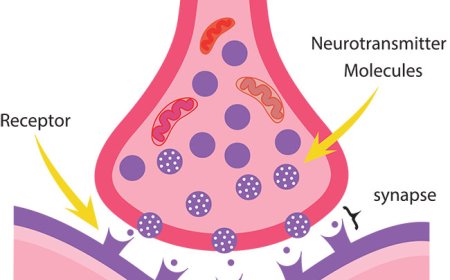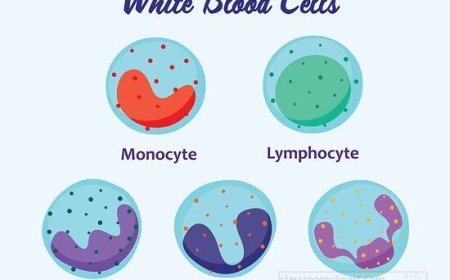Helpful Helpers: Enzymes, Bacteria, and Organs That Support Digestion
Learn how enzymes, bacteria, and organs like the liver and pancreas help digestion in this student-friendly guide. Discover how your body breaks down food and stays healthy. Includes quiz and summary.
🧫 Helpful Helpers: Enzymes, Bacteria, and Organs That Support Digestion
The digestive system is like a busy team—and while the mouth, stomach, and intestines get most of the attention, there are “helper” players working behind the scenes. These include powerful enzymes, friendly bacteria, and important organs like the liver, pancreas, and gallbladder. Without them, your body wouldn’t be able to turn food into fuel or absorb the nutrients it needs.
Let’s explore these helpful heroes of digestion and see how they keep your digestive system running smoothly every day.
🧪 Enzymes – Nature’s Food Breakers
Enzymes are special proteins your body makes to break down large food molecules into smaller ones your body can use. Each type of enzyme works on a different part of food.
Here are the main types of digestive enzymes:
- Amylase – breaks down starches into sugars (found in saliva and pancreas)
- Protease – breaks down proteins into amino acids (found in the stomach and pancreas)
- Lipase – breaks down fats into fatty acids (made by the pancreas)
Enzymes work best when they’re mixed with food in the stomach and small intestine. They help turn food into tiny parts that can pass into your bloodstream.
🧬 Gut Bacteria – Your Microscopic Helpers
Your intestines are home to billions of tiny living bacteria, also called gut flora or microbiota. These friendly bacteria play a big role in keeping your digestive system healthy.
Here’s what they do:
- Break down fiber your body can’t digest
- Produce certain vitamins, like vitamin K and some B vitamins
- Protect against harmful germs by crowding them out
- Help train your immune system
Most gut bacteria live in your large intestine, and they work quietly all day long.
🧠 Fun Fact:
You have more bacteria in your body than human cells—most of them live in your gut!
🧫 Liver, Gallbladder, and Pancreas – Secret Digestive Superheroes
These three organs don’t touch food directly, but they make and release chemicals that are essential for digestion.
1. Liver
- Produces bile, a greenish fluid that helps break down fats
- Filters toxins and waste from the blood
- Stores energy from sugars for later use
2. Gallbladder
- Stores bile from the liver
- Releases bile into the small intestine during meals to help digest fats
3. Pancreas
- Releases digestive enzymes (amylase, lipase, protease) into the small intestine
- Produces insulin, which helps control blood sugar
Without these helper organs, your body couldn’t digest fats, proteins, or sugars properly.
💡 How to Keep Your Digestive Helpers Healthy
You can help your enzymes, bacteria, and organs do their job by:
- Eating plenty of fiber (from fruits, veggies, and whole grains)
- Avoiding too much sugar and junk food, which can harm gut bacteria
- Drinking water, which helps move food through your system
- Eating slowly and chewing well, which helps enzymes work better
- Getting enough sleep and exercise, which supports your liver and pancreas
🎉 Fun Facts About Digestive Helpers
- Your pancreas makes about 1 liter of digestive juice each day
- Bile can emulsify fat, meaning it breaks it into tiny droplets
- Some bacteria in your gut can make chemicals that boost your mood
- Gut bacteria can change based on what you eat—healthy food = healthy bacteria
- Your liver is the second-largest organ in your body (after your skin)
🧠 Vocabulary
- Enzyme – A protein that breaks down food during digestion
- Amylase – Enzyme that breaks down starches
- Protease – Enzyme that breaks down proteins
- Lipase – Enzyme that breaks down fats
- Bacteria – Tiny living things that help digest food and fight germs
- Liver – Organ that makes bile and processes nutrients
- Gallbladder – Organ that stores bile from the liver
- Pancreas – Organ that makes enzymes and insulin
- Bile – Fluid that helps digest fats
- Insulin – Hormone that controls sugar in the blood
✅ Interactive Quiz: Helper Heroes!
1. What do enzymes do in digestion?
A. Stop food from moving
B. Help break down food into nutrients
C. Kill bacteria
D. Store vitamins
2. Where are most gut bacteria found?
A. Mouth
B. Small intestine
C. Large intestine
D. Liver
3. What does the liver produce to help digest fat?
A. Saliva
B. Stomach acid
C. Bile
D. Insulin
4. What does the pancreas make?
A. Blood cells
B. Stomach acid
C. Digestive enzymes and insulin
D. Water
5. How can you support good gut bacteria?
A. Eat lots of sugar
B. Drink soda
C. Eat fiber-rich foods
D. Skip breakfast
🧒 Kid-Friendly Summary
Your body has hidden helpers that keep digestion running smoothly. Enzymes break food apart, friendly bacteria protect your gut, and organs like the liver, pancreas, and gallbladder help you absorb nutrients. Taking care of these helpers with healthy food and good habits makes your whole body stronger!




















































